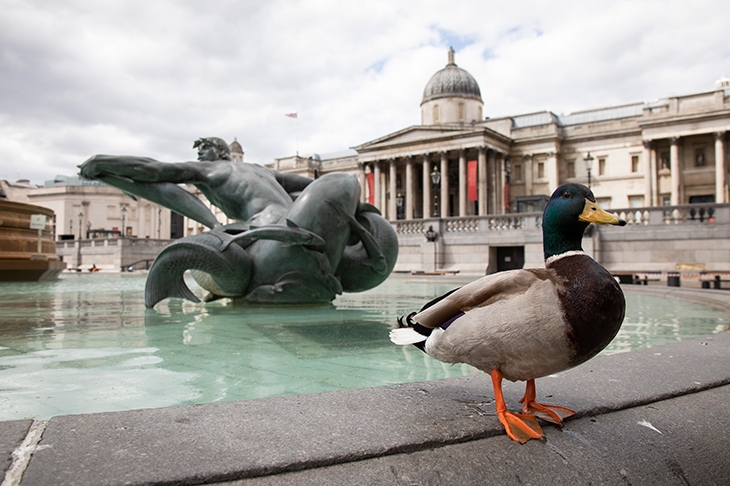For all the abuse heaped on the Behavioural Insights Team early in the crisis, let’s not forget that the only three immediate solutions proposed by the combined ranks of the scientific establishment were, um, behavioural. People were encouraged to wash their hands with soap for 20 seconds, to stay home where possible and to keep two metres away from those outside their household.
And we adopted this advice in our millions, long before any mandate had been issued. It would be wrong, when modelling the spread of this disease, to overlook the effect of voluntary preemptive action. My last visit to London was on 12 March, 11 days before we were made to stay indoors. It was already a ghost town. Some elderly relatives had been self-isolating from the beginning of the month. A few multinationals banned all air travel from late February.
This does not mean the lockdown was irrelevant of course. Many people were revising their behaviour in anticipation of it. Others were unable to work remotely until it had been enforced. But it is plausible that the now famous R was already lower in mid-March than in February.
The problem with R, of course, is that it is simply an average. And the problem with averages as metrics is that they limit your response to indiscriminate interventions. Often it is the variance, not the average, that matters. Are some people more contagious or more susceptible than others? Are some locations inordinately infectious? Does the size or location of the initial viral dose have a bearing on the severity of the disease?
Eventually we may learn that perhaps 5 per cent of out-of-home locations (lifts? Mass transit? Conferences? Buffets? Hospitals?) drive 95 per cent of the spread of the disease. Only testing combined with tracing can tell us how to target interventions where they matter most.
But if voluntary action played a part before the lockdown, what part might it play in keeping transmission low once lockdown has ended?
A few years ago I became convinced that the people who worked for me should work from home more. I was influenced in this by the work of Nassim Taleb, who argues that a high degree of variation may be better than monotonous pursuit of a supposedly optimal average. This led me to think it might be better to partition work into periods of high sociability interspersed with days of self–seclusion, as an alternative to the neither-fish-nor-fowl halfway-house of the open-plan office.
What I discovered was that it is not enough to ‘allow’ people to work remotely. You must actively encourage it. If remote working is merely ‘allowed’, it is perceived as a concession and people feel they are burning reputational capital whenever they take up the option. Only active evangelism normalises the behaviour.
I use ‘evangelism’ deliberately here. A glance at history shows that a huge number of socially beneficial behaviours have spread not in response to coercive legislation but by norm-setting, whether led by royalty or religion.
Through our obsession with legal or economic interventions, we ignore this too often. Which is why the Behavioural Insights Team remains important. Is behavioural science a proper science? I don’t much care, to be honest. What matters is that once you allow the consideration of wider social factors in influencing behaviour, you expand the possible solution-set far beyond the narrow imaginative limits of the economists and lawyers who dominate policy- making today. Social psychology may not always provide answers, but it does produce much better questions.
/>
Got something to add? Join the discussion and comment below.
Get 10 issues for just $10
Subscribe to The Spectator Australia today for the next 10 magazine issues, plus full online access, for just $10.
Rory Sutherland is vice-chairman of Ogilvy UK.
You might disagree with half of it, but you’ll enjoy reading all of it. Try your first month for free, then just $2 a week for the remainder of your first year.















Comments
Don't miss out
Join the conversation with other Spectator Australia readers. Subscribe to leave a comment.
SUBSCRIBEAlready a subscriber? Log in